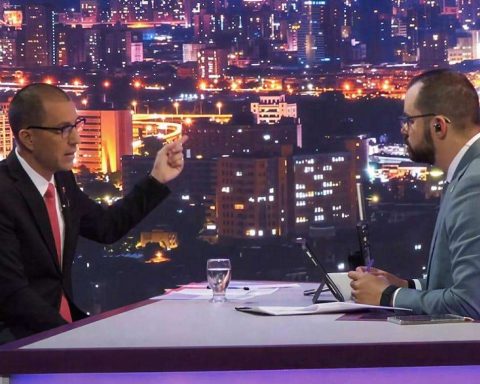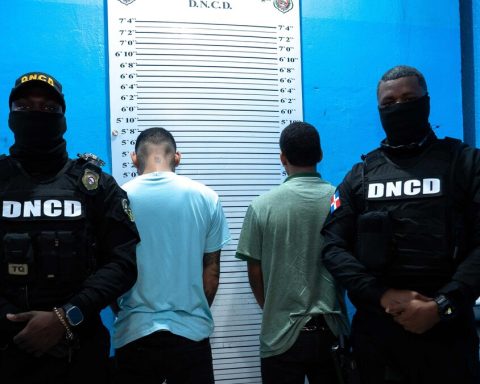The International Film and Transcendence Festival made its debut at the Centro Cultural Banco do Brasil Rio de Janeiro (CCBB RJ), celebrating 10 years, with a selection of ten films that marked its trajectory. There is also the Deep Brazil Show, with 16 titles that reveal the Brazilian sertão to the public, with its mythological, poetic, indigenous, African characteristics, covered by legends, festivities and strings. It includes works by Geraldo Sarno and Glauber Rocha.
The event debuted in Rio de Janeiro this month, after eight editions in Brasília and two online, and will be held at CCBB RJ until the 19th, then moving on to CCBB SP, from March 26th to April 16th. Tickets cost BRL 10 (full ticket) and BRL 5 (half ticket) and are available at 9am on the day of the session at the physical box office, or at Bank of Brazil website. Cinema Room 1 at CCBB RJ has 102 seats, four for wheelchair users.
Considered the only film festival in Brazil that investigates the subjectivity of the paths of consciousness and self-development through cinematographic art, the event will have a special program on International Women’s Day, this Wednesday (8). Two feature films will be screened that address the legacies of the Indian philosopher and popular activist Vimala Thakar (In the Fire of Dancing Stilness), at 3 pm; and Gloria Arieira, Brazilian teacher of Vedanta, ancestral knowledge of India (Kamala, Paths of Glory), at 5 p.m. At 6:30 pm, the episode will be shown Marietta, Mother of the Worldfrom the TV series Resto de Mundo, followed by a chat about female nature, with Gloria Arieira, Diego Zanotti, her student and director of the series, and Carina Bini.
The festival also features, in addition to films, cultural activities that include yoga classes, frevo, storytelling, musical performances, on weekends, in the cinema hall, with free admission.
Retrospective
Created in 2013, the International Film and Transcendence Festival brings together films that explore the experience of personal transformation based on their narratives. According to the organizers, the selected titles promote a transforming relationship between cinema and the reality of each person, addressing topics such as spirituality, self-knowledge practices, meditation, biographies of scholars, sages or gurus, ancestry, hallucinogenic expanders, therapies, shamanism and other issues that address the path of quest for consciousness.
For curator André Luiz Oliveira, the possibility of promoting the relationship of cinema as a mediating art between the aesthetic sense and the introspective experience of self-knowledge is the keynote of the festival. During the first years of the new coronavirus pandemic, the festival had free online editions that reached 60,000 people in Brazil and abroad.
The retrospective program of the tenth anniversary of the festival at CCBB Rio brings, among others, documentaries such as psychomagicthe most recent film by Chilean Alejandro Jodorowsky, for whom cinema is capable of “transforming souls and minds”; Meeting the Beatles in Indiain which filmmaker Paul Saltzman retraces his journey 50 years ago, when he lived with the Beatles at the home of guru Maharishi Mahesh Yogi; Orin – Music for the Orixásby Henrique Duarte, on the influence of sacred songs from Candomblé terreiros on Brazilian popular music, among others.
deep Brazil
Among the highlights of Mostra Brasil Profundo is the classic The Dragon of Evil against the Holy Warrior, a masterpiece by Glauber Rocha, awarded best director at the Cannes Film Festival in 1969, which presents an unjust and violent Brazilian society in the Northeast, at the same time, rich and powerful in its cultural essence. The film is known internationally as Antonio das Mortesname of the protagonist, who appeared in another film by the director, God and the Devil in the Land of the Sunfrom 1964.
Works by filmmaker Geraldo Sarno (1938-2022), director and scriptwriter from Bahia, are also remembered, who addressed topics such as the Brazilian migratory movement, religions and popular culture. Three classic short films, filmed in the 1970s (Jornal do Sertão, Father Cicero It is Vitalino), in addition to his latest feature film Sertaniareleased in 2020.
Also on the program are two films by the filmmaker from Ceará, Hermano Penna, whose theme is cangaço and caboclo art, the medium-length Nhô Caboclo and the missing link, based on the cultural manifestations of the encounter between blacks and Indians; and the long José de Julião – Far beyond Cangaço, which recovers the figure of a man who went from bandit to politician, in the sertão of Sergipe. Also having the sertão and cangaço as a reference, the festival presents the short fiction film fire doorby Bahian filmmaker Edgard Navarro, and a documentary about the life of accordion player and composer Dominguinhos, directed by Mariana Aydar and Eduardo Nazarian.
The program also includes the documentary Myth and Music – The Message of Fernando Pessoa, by Portuguese-Brazilian filmmaker Rama de Oliveira, in partnership with filmmaker and musician André Luiz Oliveira. From the director from Bahia, a short documentary will be shown It’s the second of Julyfilmed in 1979, which will be screened for the first time at the festival, with a restored copy, portraying the Bahian civic festival of the caboclo and cabocla, which recalls the war of independence in Bahia, which resulted in the definitive expulsion of the Portuguese.
















